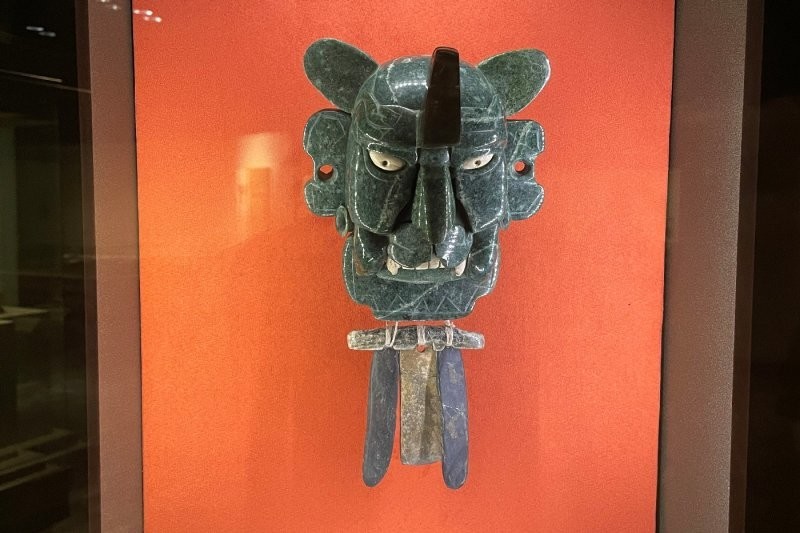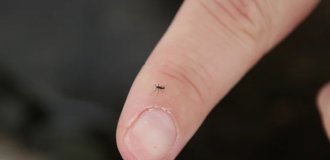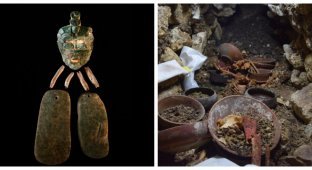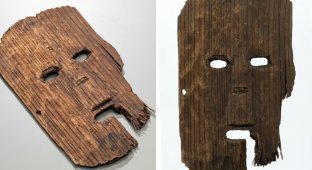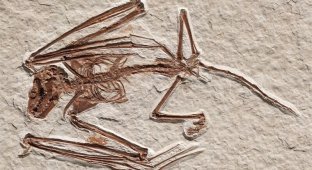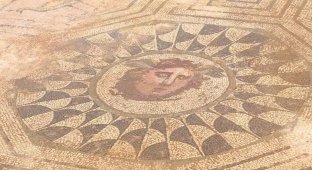Winged deity in jade reading (8 photos)
This strange and terrible jade mask was discovered by archaeologists who were excavating a tomb in the ruins of the ancient city of Monte Alban, which was once the heart of the powerful Zapotec civilization. Although there is some disagreement among experts about the purpose of this mask, the vast majority of scientists believe that it represents a bat. 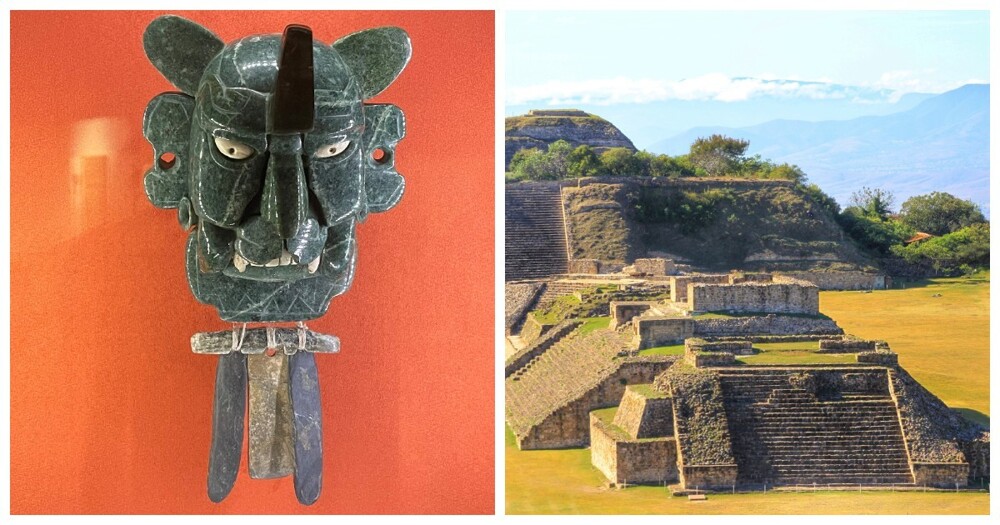
The mask is believed to have been created between 100 BC. e. and 200 AD e. during the reign of Monte Alban in this region. It is made from 25 pieces of jade, highly prized in Mesoamerican civilizations. Amber-yellow expressive eyes, which seem to carefully watch everything around, are made from shell fragments. The find is on display at the National Museum of Anthropology in Mexico City and is known as the mask of the Zapotec bat god. 
Monte Alban
Bats were very symbolic of the Zapotec civilization for a number of reasons.
Due to the fact that the winged creature lived in caves, tombs, temples and treetops, people believed that it was the Zapotec god of bats himself, through his messengers, who communicated from the sacred underworld. And mice were ancestor spirits who roamed the underworld, sometimes emerging into the light. 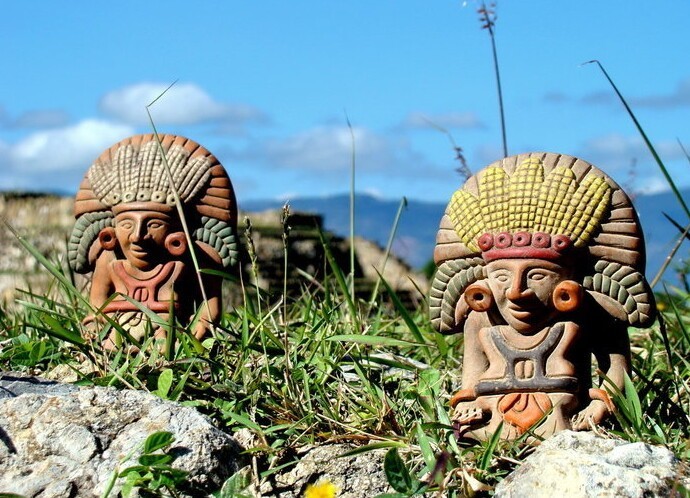
The nocturnal life of these animals strengthened this belief, since the onset of night is a kind of symbol of a small death. But there is another, even more frightening symbolism that bats “gave” to the ancient Zapotec people. The vampire bat is a species found in most regions of Mexico and is especially common in Oaxaca. The animals feed on the blood of mammals and are not averse to feasting on human blood. 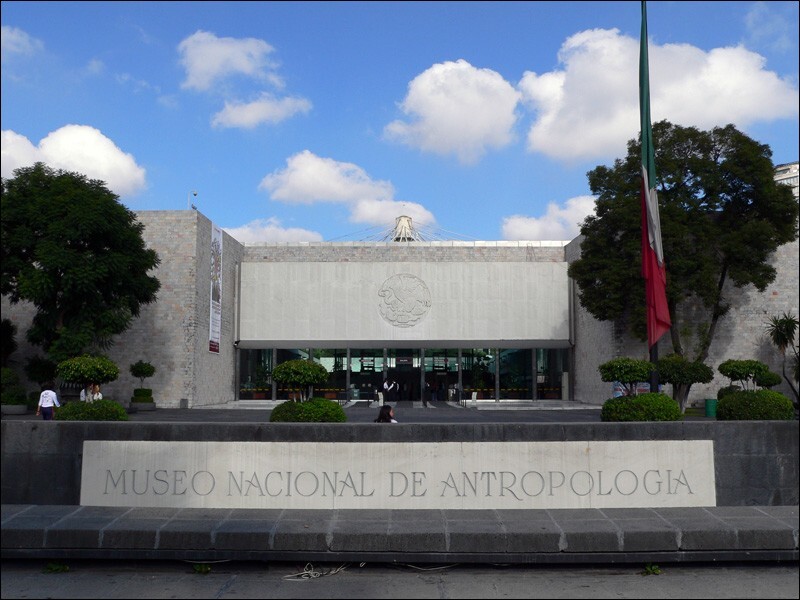
National Museum of Anthropology
Because of its bloody diet, this animal became associated with the rites of bloodletting and human sacrifice, which were practiced as a sign of honoring the gods and ensuring abundant harvests of maize, which served as the basis of nutrition and the guarantor of the survival of the ancient civilization. 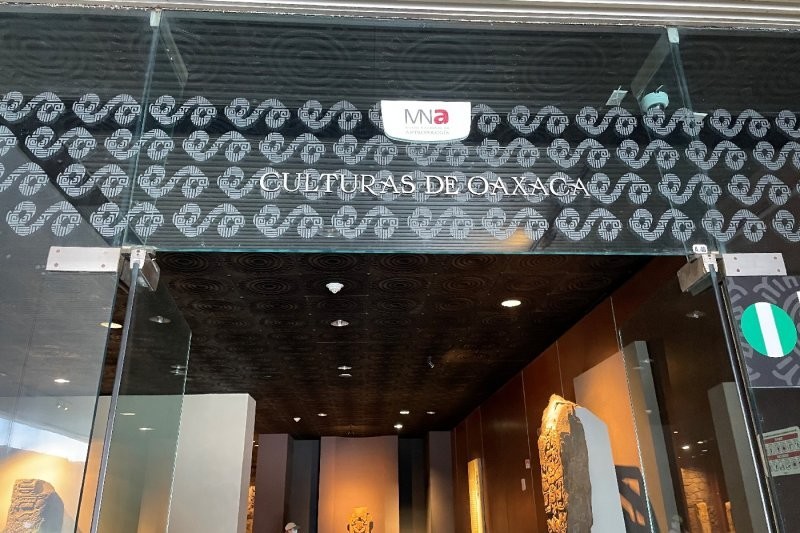
Hall of Cultures of Oaxaca
The long, upward snout characteristic of bats in the Americas, known as the “leaf nose,” suggests that the mysterious mask discovered at Monte Alban most likely represents a hybrid of a vampire bat and one of the many insectivorous species found in this region. 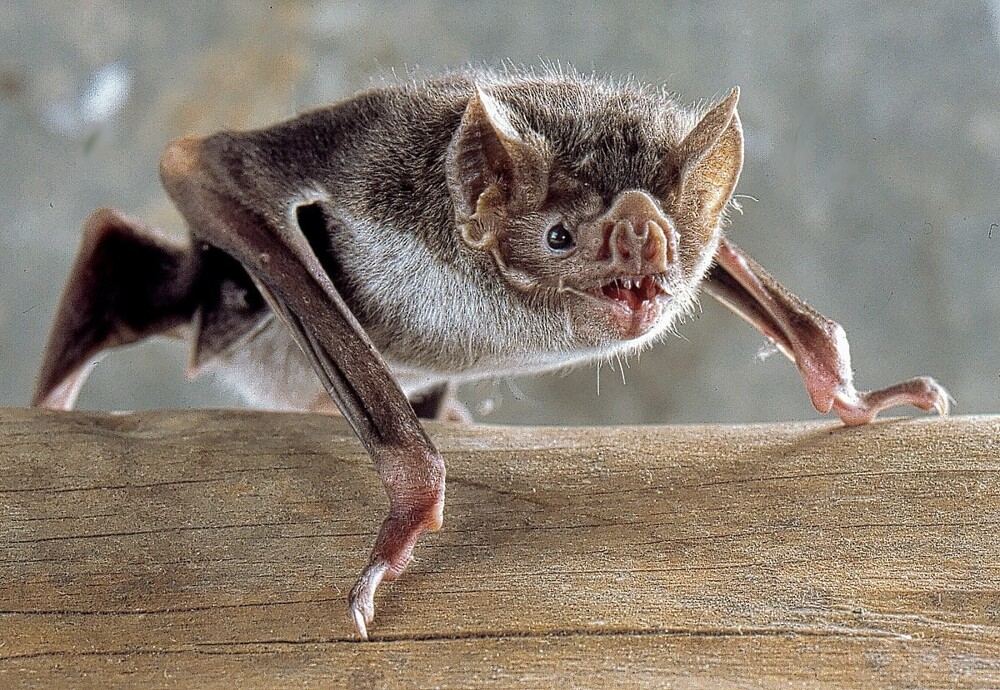
Desmodus rotundus – common vampire bat
This is truly a rare case when mythology reflects reality. After all, insectivorous bats actually help preserve the region's corn crop to this day by hunting numerous insect pests that destroy crops and can cause famine. 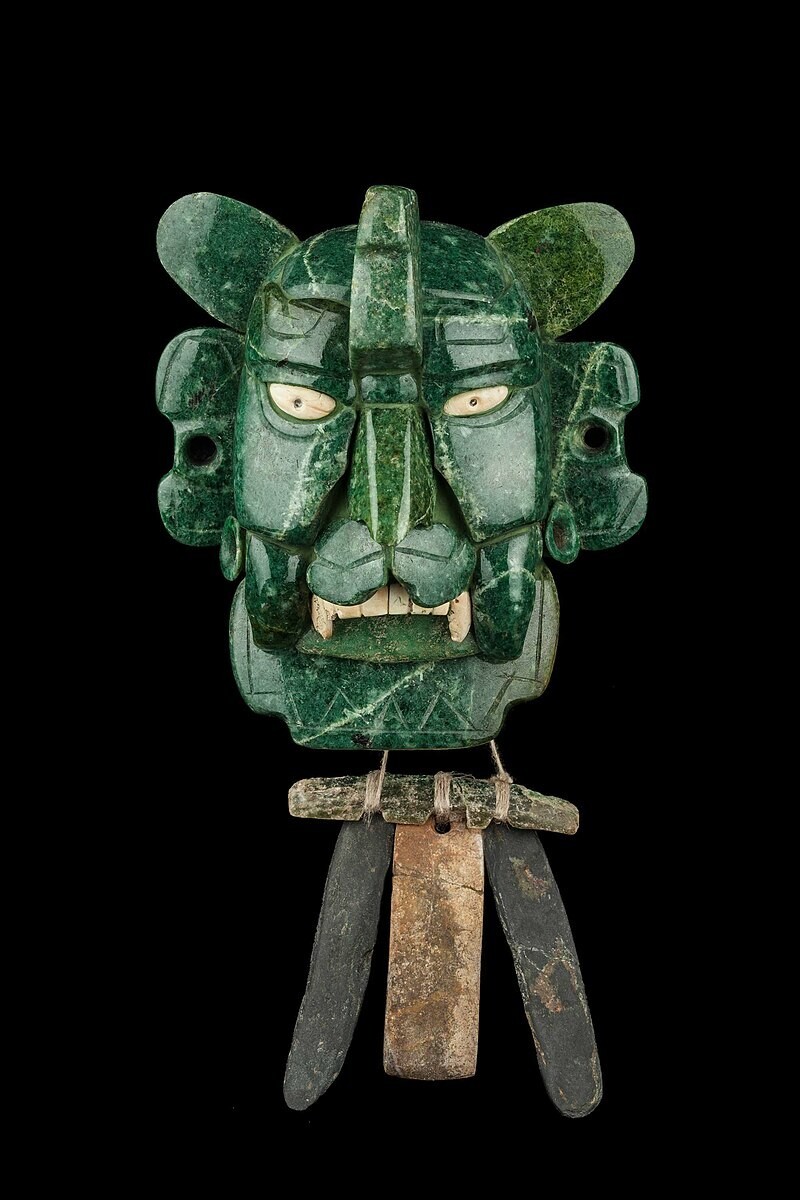
God mask in the shape of a bat. Nephritis. Zapotec culture. Monte Alban. 1st millennium AD
It is likely that the critical role of these winged helpers in the ecosystem did not go unnoticed by the ancient peoples, who carefully observed the nature around them. And in this way they tried to thank the little creature on which their survival depended. 